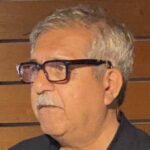S Dhillon
(Chandigarh, Inde)
Stress fractures, constituting 5% of athletic injury and also seen in military personnel, present diagnostic and management challenges due to their subtle onset and potential for severe complications. This presentation delves into recent advancements in stress fracture diagnosis and management strategies, aiming to provide a comprehensive understanding for practitioners.
Diagnostic delays are often the main problem; MRI and other emerging technologies such as and bone scintigraphy offer superior sensitivity than simples X-rays in detecting stress fractures. Additionally, novel imaging modalities like ultrasound and advanced computational modelling (even PET CT) contribute to precise localization and characterization of these injuries.
In 2024 stress fracture management is evolving with the integration of evidence-based practices and multidisciplinary approaches. From conservative measures like modified activity and biomechanical adjustments to innovative interventions such as extracorporeal shockwave therapy and regenerative medicine techniques, clinicians are equipped with a diverse armamentarium to optimize patient outcomes.
This presentation synthesizes current research findings, clinical guidelines, and expert insights to furnish attendees with a holistic perspective on stress fracture management and diagnosis. By elucidating cutting-edge methodologies and best practices, this presentation aims to empower healthcare professionals in delivering efficient, tailored care for individuals afflicted by stress fractures.


